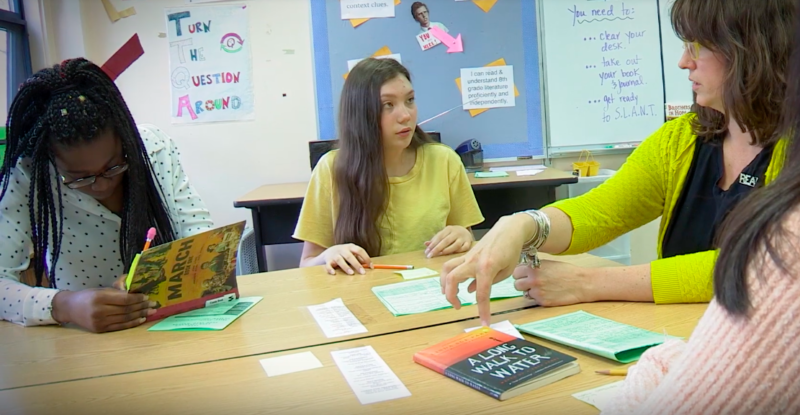Every classroom has a few eager students who always participate and a less enthusiastic majority content to sit back. Often asking students to raise a hand when they know the answer exacerbates this problem because some students process the question more quickly and their eagerness to answer can undermine others' confidence. That's why Ann Young, a middle school math teacher, uses a thumbs up strategy that's less visible to give students more confidence participating.
"You need instructional strategies and routines that allow everybody an entry point, particularly at the beginning of the class," Young said in an Edutopia series on the science of learning. If you have something where the kids are feeling like, 'Oh, this is great, I participated today, I contributed something today,' then they go on to their next task, you have them a little bit more than you would otherwise."
Giving students some agency over their learning is another simple way to increase student motivation. No matter how carefully a teacher picks books to include in the curriculum there will always be students who aren't excited to read them. Letting students choose books they'll read in a book club format could make the difference for many.


